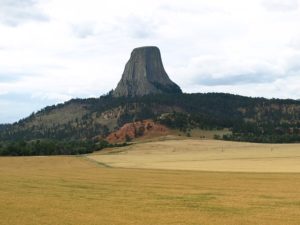“Does everyone have an axe?”
It was not a question Tony had expected to hear when he agreed to visit his fiancee’s aunt and uncle over the weekend. Last time he had held an axe was at a Renaissance Festival.
“I think I have another in the garage,” said Joy’s uncle Paul. He ran off to fetch it.
The older man who had been invited to lead this expedition, Ronny, looked at the trees bordering the lawn. “So you’ve never seen any flying squirrels ’round here?”
Joy’s cousin Eric answered. “Not that I know of.”
Paul returned and handed Tony the axe. Then Ronny led the five of them, Tony, Joy, Paul, Eric, and Eric’s friend Chris into the woods. Joy’s aunt had decided to stay home and cook dinner.
“What we’re looking for is any tree with a hole in it,” Ronny said over the crunching of dead leaves. “Like this here.”
He stopped before a big, smooth-barked tree. Tony had never been able to name different trees. Halfway up was a dark hole. Ronny gripped his axe tight, pulled back, and hammered the trunk with the blunt side of the head. The wooden shock rang out three times. Ronny studied the hole. “It’ll come jumping out after a few whacks if it’s in there. You gotta watch carefully and see where it goes. I’ve followed one halfway up a mountain before I snagged it.”
Chris raised the net he carried triumphantly. He’d never been flying squirrel hunting before. None of them had.
Ronny stomped deeper into the forest, examining each tree. “Here’s another. Someone else try.”
Paul knocked the trunk four times. He’d been the one who’d invited Ronny.
“No luck,” Ronny said. “These are exactly the type of trees you’ll find them in. I bet we find one. Just takes some time. Fan out.”
Tony started forward uncertainly, Joy following him. The land sloped downward. Soon, when Tony looked back, he could not see the house. The cool autumn air gave a crispness to the woods. There was little undergrowth, just trees rising from the orange and brown carpet of leaves. The branches above were bare, with an ashen sky enveloping them.
“How about this one?” Joy said.
Tony looked up. It seemed a good specimen. “Just smack it, huh?”
“I guess.”
Tony swung the metal head hard against the trunk, feeling the impact in his arms, two, three, four, five times. Nothing. He looked at Joy, shrugged, and continued on.
It was silent except for the swish of their feet and the occasional thud-thud resounding through the woods. Tony could see the others wandering slowly downward, tiny amid the trees and expanse of land, drawn forward by the expectation of a grey rodent shooting out of a hole.
Eventually, the several groups meandered back into a loose formation. Ronny led, smacking away now and then, staring upward and shaking his head.
At the slope’s bottom was a dry stream that etched a deep path through the flat land. Tony remembered his grandparents’ cabin. They had sold it when he was eight or nine. He used to follow the creek, wading in and out of the water, trying to jump across at the narrowest sections or crawl across a fallen log. He jumped down into the streambed, where water had uncovered smoothed rocks. He followed it as the others continued on, Joy talking with her cousin.
Tony had left his phone back at the house. He didn’t know how long they’d been out. Most of the others were walking up the opposite slope now. He climbed out of the stream and angled toward them.
He ascended the height still some distance from them. Nearby was a beaten trail and two junk cars rusting peacefully like lost relics. Tony beat a tree and watched the hole, not expecting much. He didn’t hear the others pounding often.
By the time he reached them, they had reached the edge of someone’s property. Tony could see the back of a house and hear a car on a road somewhere beyond. “These woods are perfect for flying squirrels,” Ronny was saying. “Sometimes it’s like that, you strike out, but it’s the right kinda trees.”
Paul pointed the way back to his house, and they started the return journey. The wind was rising a bit, and Tony was getting hungry.
“Sorry we didn’t find any squirrels,” Joy said. She smiled a bit, like she didn’t think there were any.
Tony just nodded. He didn’t want to talk. It was quiet in the forest. He let Joy go ahead and he followed, surrounded by trees and leaves and slow hills, and hoped the way back was not too short.




Recent Comments